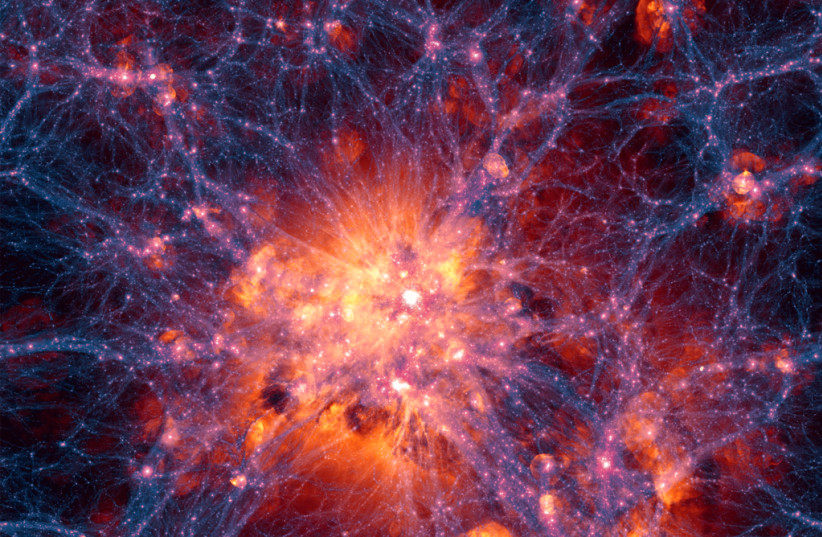A galaxy several times larger than the Milky Way is seemingly devoid of all dark matter, challenging previous understandings of how the universe works, a new study found.
Dark matter, seemingly invisible, is thought to make up a vast majority of all matter in the universe. However, this is the first time a massive galaxy, designated NGC 1277, has seemingly had no dark matter in it at all.
The findings of this study were published in the peer-reviewed academic journal Astronomy and Astrophysics.
Why does any of it (dark) matter? The role an invisible material plays in our universe
Dark matter is an important building block of the universe, although it's one we don't know much about. As the name implies, dark matter itself is invisible. It emits no light, and thus cannot be seen. There are ways to know it is there thanks to gravity, but they are rather complicated.
Despite this, it is estimated that dark matter makes up 85% of the observable universe. Further, the standard model of cosmology has maintained that dark matter is incredibly important, being a major part of the universe's continued evolution over time.

With such a massive presence in the universe, it makes sense that dark matter remains a subject of considerable interest to scientists. Over time, the literature on dark matter has managed to steadily increase as scientists learn more about it.
Which is why this discovery was so shocking.
In a galaxy far far away
The galaxy in question is NGC 1277, located some 220 million light-years away from the Milky Way. That this galaxy exists is nothing new – it was actually discovered back in 1875. There were some things unique about it, such as its age, with its stars being around seven billion years older than our Sun and all formed during a relatively short 100 million-year period some 12 billion years ago, which has caused it to be known as a "relic of the early universe."
It was this quality as a relic galaxy that made NGC 1277 so important for scientists since there is always considerable interest in how these early giant galaxies formed.
The researchers behind this study, led by Instituto de Astrofísica de Canarias (IAC) and the University of La Laguna (ULL) researcher Sebastién Comerón, decided to put this galaxy through an integral field spectrograph, a way of studying large objects in space by getting to see the different light spectrums of each part of a given picture.
When they did this, though, they found some interesting things about the galaxy's mass. Specifically, with how the mass was distributed throughout the galaxy, there would be little, if any, dark matter whatsoever.
This makes no sense when taking the standard model into account. At a minimum, NG 1277 should have at least 10% of its mass be dark matter and possibly as much as 70%. As it is now, it could have just 5% at most – but it's very possible it has none at all.
As noted by study co-author Ignacio Trujillo in a statement, this could pose a challenge to the standard model.
But what could be the reason for this?
Well, the researchers do have some theories. such as perhaps interacting with other nearby galaxies has stripped it of its dark matter, or perhaps circumstances during the galaxy's formation forced all the dark matter out.
But the researchers aren't satisfied with this explanation. Instead, they hope to launch further research to find out more.
And if it turns out this galaxy really never had any dark matter, then it could rewrite the laws of gravity as we know it.
